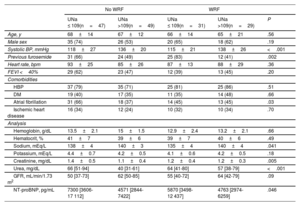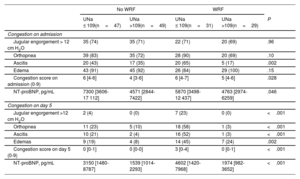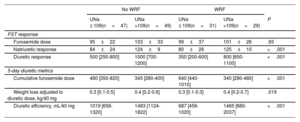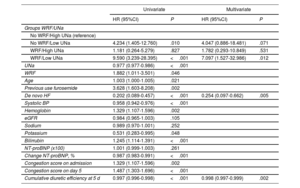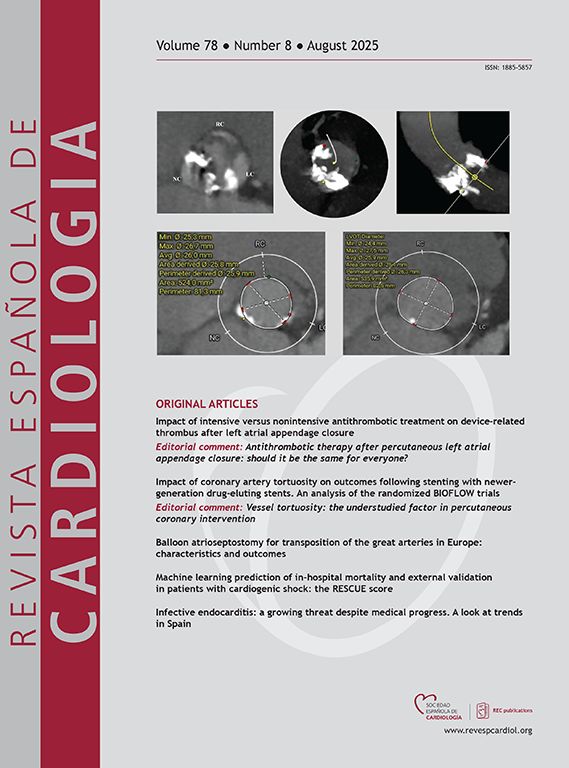
Worsening renal function (WRF) is a frequent complication in acute heart failure (AHF) with a controversial prognostic value. We aimed to study the usefulness of natriuresis to evaluate WRF.
MethodsWe conducted an observational, prospective, multicenter study of patients with AHF who underwent a furosemide stress test. The patients were classified according to whether WRF was present or absent and according to the median natriuretic response. The main endpoint was the combination of mortality, rehospitalization due to HF, and heart transplant at 6 months of follow-up.
ResultsOne hundred and fifty-six patients were enrolled, and WRF occurred in 60 (38.5%). The patients were divided into 4 groups: a) 47 (30.1%) no WRF/low UNa (UNa ≤ 109 mEq/L); b) 49 (31.4%) no WRF/high UNa (UNa >109 mEq/L); c) 31 (19.9%) WRF/low UNa and d) 29 (18.6%) WRF/high UNa. The parameters of the WRF/low UNa group showed higher clinical severity and worse diuretic and decongestive response. The development of WRF was associated with a higher risk of the combined event (HR, 1.88; 95%CI, 1.01-3.50; P=.046). When stratified by natriuretic response, WRF was associated with an increased risk of adverse events in patients with low natriuresis (HR, 2.28; 95%CI, 1.15-4.53; P=.019), but not in those with high natriuresis (HR, 1.18; 95%CI, 0.26-5.29; P=.826).
ConclusionsNatriuresis could be a useful biomarker for interpreting and prognosticating WRF in AHF. WRF is associated with a higher risk of adverse events only in the context of low natriuresis.
Keywords
Identify yourself
Not yet a subscriber to the journal?
Purchase access to the article
By purchasing the article, the PDF of the same can be downloaded
Price: 19,34 €
Phone for incidents
Monday to Friday from 9am to 6pm (GMT+1) except for the months of July and August, which will be from 9am to 3pm





